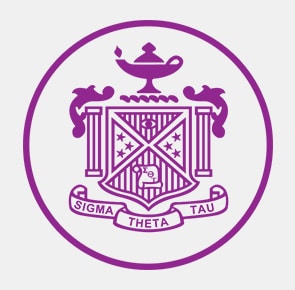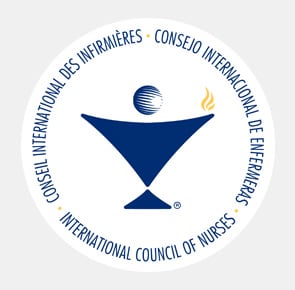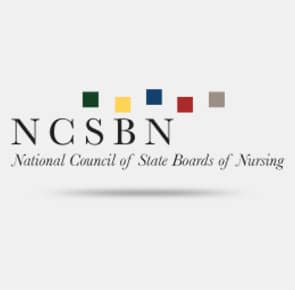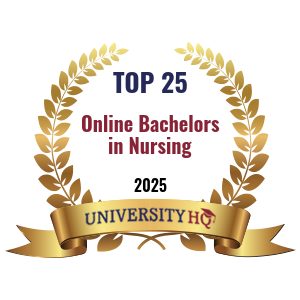University Headquarters (HQ) is an industry-leading, independent educational organization that provides independent college rankings using a proprietary formula to create first class, unbiased rankings. The team at University HQ strives to provide accurate and trustworthy rankings that highlight the best programs for a bachelors in nursing.
A career in nursing is an exciting prospect that starts with you discovering the various types of nursing degrees and allows you to make meaningful contributions to the safety and welfare of society, including its most vulnerable members: the sick, the elderly, and the youngest. If you choose to become a nurse (which can mean work in nursing research, health promotion, nursing informatics, community health nursing, nursing leadership as registered nurses, and more) you will gain access to a broad field and have the training to deal with compelling challenges in nearly every area of medical and health sciences. This extends from managing staff to working side-by-side with surgeons to save lives. Many in-person and online nursing programs prepare students for nursing licensure, no matter their overall interests. BSN graduates who earn their RN to BSN degree through online nursing programs can put their nursing courses toward a successful career in whatever niche they choose.
A nursing career can be satisfying and rewarding personally, professionally, and financially. Some of the highest paying and fastest-growing fields in healthcare are among nursing specialties and in nursing practice such as nurse anesthetist, psychiatric nurse, registered nurses (RN), and family nurse practitioner. A bachelor's in nursing (BSN program or RN to BSN degree) also opens the doors to mid-level and senior positions in nursing leadership or management, nurse education, and delivery of medical services and improvement of patient outcomes as a nursing professional. Or you can continue on to a Master of Science in Nursing (MSN) program after you complete your BSN degree, with higher level nursing courses and a number of prerequisite courses from when your in-person or online BSN program was completed and become an advanced practice registered nurse (APRN) or family nurse practitioner. And, eventually, you may even choose to earn your Doctor of Nursing Practice (DNP). During these in-person or online nursing programs, you will take many prerequisite courses, which will cover nursing theory, nursing informatics, critical thinking in nursing situations, health assessment, and more. An online nursing school or online nursing degree should have the same nursing courses that an in-person nursing program has, and lead to the same options for RN licensure.
Featured Online Programs
Top 25 Best Online Bachelors in Nursing Programs
University of Wisconsin-Madison
Score: 82.95
- Undergraduate Tuition
- In-State: $11,205
- Out-of-State:$40,603
- Net Price: $14,216
- Acceptance Rate: 43%
- Retention Rate: 95%
- Graduation Rate: 89%
- Total Enrollment: 49,605
- Undergrad Students: 36,797
- Graduate Students: 12,808
- Grads Salary: $80,000
- Student-to-faculty: 18:1
Ohio State University
Score: 79.13
- Undergraduate Tuition
- In-State: $12,859
- Out-of-State:$38,365
- Net Price: $19,575
- Acceptance Rate: 51%
- Retention Rate: 94%
- Graduation Rate: 88%
- Total Enrollment: 60,046
- Undergrad Students: 45,728
- Graduate Students: 14,318
- Grads Salary: $77,000
- Student-to-faculty: 18:1
University of Delaware
Score: 78.32
- Undergraduate Tuition
- In-State: $16,080
- Out-of-State:$39,720
- Net Price: $17,716
- Acceptance Rate: 65%
- Retention Rate: 90%
- Graduation Rate: 79%
- Total Enrollment: 24,221
- Undergrad Students: 19,772
- Graduate Students: 4,449
- Grads Salary: $81,000
- Student-to-faculty: 15:1
Clemson University
Score: 77.96
- Undergraduate Tuition
- In-State: $15,554
- Out-of-State:$39,498
- Net Price: $24,408
- Acceptance Rate: 38%
- Retention Rate: 93%
- Graduation Rate: 88%
- Total Enrollment: 28,747
- Undergrad Students: 22,875
- Graduate Students: 5,872
- Grads Salary: $76,000
- Student-to-faculty: 16:1
Texas A&M University-College Station
Score: 77.96
- Undergraduate Tuition
- In-State: $13,099
- Out-of-State:$40,328
- Net Price: $21,610
- Acceptance Rate: 63%
- Retention Rate: 94%
- Graduation Rate: 84%
- Total Enrollment: 76,633
- Undergrad Students: 59,933
- Graduate Students: 16,700
- Grads Salary: $80,000
- Student-to-faculty: 19:1
Stanbridge University
Score: 77.03
- Undergraduate Tuition
- In-State: $36,710
- Out-of-State:$36,710
- Net Price: $23,800
- Acceptance Rate: 11%
- Retention Rate: 93%
- Graduation Rate: 77%
- Total Enrollment: 2,642
- Undergrad Students: 2,373
- Graduate Students: 269
- Grads Salary: $76,000
- Student-to-faculty: 15:1
University of St. Francis
Score: 76.78
- Undergraduate Tuition
- In-State: $37,000
- Out-of-State:$37,000
- Net Price: $16,455
- Acceptance Rate: 64%
- Retention Rate: 73%
- Graduation Rate: 65%
- Total Enrollment: 3,185
- Undergrad Students: 1,306
- Graduate Students: 1,879
- Grads Salary: $88,000
- Student-to-faculty: 13:1
University of Rochester
Score: 76.68
- Undergraduate Tuition
- In-State: $64,348
- Out-of-State:$64,348
- Net Price: $40,900
- Acceptance Rate: 36%
- Retention Rate: 93%
- Graduation Rate: 84%
- Total Enrollment: 12,160
- Undergrad Students: 6,764
- Graduate Students: 5,396
- Grads Salary: $86,000
- Student-to-faculty: 9:1
University of South Florida
Score: 76.63
- Undergraduate Tuition
- In-State: $6,410
- Out-of-State:$17,324
- Net Price: $11,578
- Acceptance Rate: 41%
- Retention Rate: 91%
- Graduation Rate: 75%
- Total Enrollment: 48,572
- Undergrad Students: 37,269
- Graduate Students: 11,303
- Grads Salary: $73,000
- Student-to-faculty: 22:1
University of Florida-Online
Score: 76.23
- Undergraduate Tuition
- In-State: $3,876
- Out-of-State:$16,579
- Net Price: $10,412
- Acceptance Rate: 64%
- Retention Rate: 94%
- Graduation Rate: 78%
- Total Enrollment: 5,462
- Undergrad Students: 5,462
- Graduate Students: N/A
- Grads Salary: $79,000
- Student-to-faculty: 51:1
Michigan State University
Score: 74.78
- Undergraduate Tuition
- In-State: $15,988
- Out-of-State:$43,372
- Net Price: $24,630
- Acceptance Rate: 84%
- Retention Rate: 91%
- Graduation Rate: 82%
- Total Enrollment: 51,316
- Undergrad Students: 40,483
- Graduate Students: 10,833
- Grads Salary: $79,000
- Student-to-faculty: 17:1
University of Central Florida
Score: 74.68
- Undergraduate Tuition
- In-State: $6,368
- Out-of-State:$22,467
- Net Price: $13,110
- Acceptance Rate: 40%
- Retention Rate: 92%
- Graduation Rate: 75%
- Total Enrollment: 69,233
- Undergrad Students: 59,470
- Graduate Students: 9,763
- Grads Salary: $71,000
- Student-to-faculty: 29:1
Florida International University
Score: 74.67
- Undergraduate Tuition
- In-State: $6,565
- Out-of-State:$18,963
- Net Price: $10,742
- Acceptance Rate: 59%
- Retention Rate: 92%
- Graduation Rate: 74%
- Total Enrollment: 53,953
- Undergrad Students: 44,363
- Graduate Students: 9,590
- Grads Salary: $71,000
- Student-to-faculty: 24:1
Molloy University
Score: 74.6
- Undergraduate Tuition
- In-State: $37,840
- Out-of-State:$37,840
- Net Price: $25,938
- Acceptance Rate: 76%
- Retention Rate: 81%
- Graduation Rate: 72%
- Total Enrollment: 4,970
- Undergrad Students: 3,259
- Graduate Students: 1,711
- Grads Salary: $85,000
- Student-to-faculty: 10:1
Auburn University
Score: 74.47
- Undergraduate Tuition
- In-State: $12,536
- Out-of-State:$33,944
- Net Price: $24,524
- Acceptance Rate: 50%
- Retention Rate: 93%
- Graduation Rate: 79%
- Total Enrollment: 33,015
- Undergrad Students: 26,874
- Graduate Students: 6,141
- Grads Salary: $76,000
- Student-to-faculty: 21:1
George Washington University
Score: 74.14
- Undergraduate Tuition
- In-State: $64,990
- Out-of-State:$64,990
- Net Price: $45,466
- Acceptance Rate: 44%
- Retention Rate: 92%
- Graduation Rate: 85%
- Total Enrollment: 25,568
- Undergrad Students: 11,387
- Graduate Students: 14,181
- Grads Salary: $85,000
- Student-to-faculty: 12:1
George Mason University
Score: 74.1
- Undergraduate Tuition
- In-State: $13,815
- Out-of-State:$39,397
- Net Price: $18,900
- Acceptance Rate: 89%
- Retention Rate: 87%
- Graduation Rate: 69%
- Total Enrollment: 39,527
- Undergrad Students: 27,666
- Graduate Students: 11,861
- Grads Salary: $82,000
- Student-to-faculty: 16:1
Texas A&M International University
Score: 73.76
- Undergraduate Tuition
- In-State: $7,846
- Out-of-State:$19,382
- Net Price: $3,833
- Acceptance Rate: 46%
- Retention Rate: 74%
- Graduation Rate: 49%
- Total Enrollment: 8,536
- Undergrad Students: 7,004
- Graduate Students: 1,532
- Grads Salary: $80,000
- Student-to-faculty: 21:1
University of Illinois Chicago
Score: 72.98
- Undergraduate Tuition
- In-State: $14,338
- Out-of-State:$29,360
- Net Price: $11,499
- Acceptance Rate: 79%
- Retention Rate: 78%
- Graduation Rate: 60%
- Total Enrollment: 33,522
- Undergrad Students: 22,107
- Graduate Students: 11,415
- Grads Salary: $80,000
- Student-to-faculty: 17:1
University of Alabama in Huntsville
Score: 72.6
- Undergraduate Tuition
- In-State: $11,770
- Out-of-State:$24,662
- Net Price: $19,847
- Acceptance Rate: 74%
- Retention Rate: 81%
- Graduation Rate: 62%
- Total Enrollment: 8,743
- Undergrad Students: 6,851
- Graduate Students: 1,892
- Grads Salary: $83,000
- Student-to-faculty: 17:1
Arizona State University
Score: 72.07
- Undergraduate Tuition
- In-State: $12,051
- Out-of-State:$32,193
- Net Price: $16,401
- Acceptance Rate: 90%
- Retention Rate: 85%
- Graduation Rate: 68%
- Total Enrollment: 79,593
- Undergrad Students: 65,174
- Graduate Students: 14,419
- Grads Salary: $77,000
- Student-to-faculty: 18:1
Lewis University
Score: 71.95
- Undergraduate Tuition
- In-State: $37,882
- Out-of-State:$37,882
- Net Price: $19,472
- Acceptance Rate: 73%
- Retention Rate: 84%
- Graduation Rate: 63%
- Total Enrollment: 6,636
- Undergrad Students: 3,948
- Graduate Students: 2,688
- Grads Salary: $79,000
- Student-to-faculty: 14:1
Maryville University of Saint Louis
Score: 71.93
- Undergraduate Tuition
- In-State: $27,166
- Out-of-State:$27,166
- Net Price: $26,733
- Acceptance Rate: 94%
- Retention Rate: 83%
- Graduation Rate: 72%
- Total Enrollment: 9,883
- Undergrad Students: 6,062
- Graduate Students: 3,821
- Grads Salary: $82,000
- Student-to-faculty: 13:1
Saint Louis University
Score: 71.45
- Undergraduate Tuition
- In-State: $53,244
- Out-of-State:$53,244
- Net Price: $30,911
- Acceptance Rate: 81%
- Retention Rate: 89%
- Graduation Rate: 80%
- Total Enrollment: 17,202
- Undergrad Students: 10,519
- Graduate Students: 6,683
- Grads Salary: $75,000
- Student-to-faculty: 8:1
California State University-Stanislaus
Score: 71.44
- Undergraduate Tuition
- In-State: $7,826
- Out-of-State:$19,706
- Net Price: $7,316
- Acceptance Rate: 97%
- Retention Rate: 80%
- Graduation Rate: 58%
- Total Enrollment: 9,841
- Undergrad Students: 8,669
- Graduate Students: 1,172
- Grads Salary: $76,000
- Student-to-faculty: 16:1
How to Earn an online Bachelor's of Science in Nursing Degree?
- Decide that Nursing is the field you want to pursue
- Select a two-year or a four-year online program to begin
- Decide whether to attend on-campus, online, or both
- Research accreditation and accredited BSN online programs
- Select one or more accredited BSN online programs
- Apply for admission
- Apply for financial aid if needed
Typical BSN Degree Requirements
Associate degree in Nursing
There are a variety of types of nursing degrees: an RN program, RN to BSN program, BSN program, and much more. An associate degree in nursing (ADN) require between 65 and 70 semester hours of study depending on the school, which should take about two years. The coursework is divided among general education, nursing core, and the nursing electives. An associate degree in nursing can prepare you to become a licensed practical nurse (LPN). You'll need at least a high school diploma or GED to get into an online nursing degree program.
Bachelor’s degree in Nursing
The bachelor’s (BSN program) requires between 120 to 125 credit hours depending on the institution. Students that lack sufficient background in science and math may have to take some additional courses such as chemistry or biology. The typical completion time is eight semesters or four years. You can also complete a LPN to BSN online program if you have already earned an associate degree. If you do not, you will at least need a high school diploma or GED to enter this degree level. Those interested in becoming registered nurses must earn this degree level or greater.
Master’s in Nursing
A Master of Science in Nursing (MSN) program requires that you first have a bachelor’s nursing degree plus two years (or three) of graduate study. The programs typically require 32-36 graduate semester credit hours. Some programs also require clinical study in a supervised clinical setting. Applicants without a bachelor’s or with those that aren't nursing degrees will have to perform supplemental coursework. An MSN program for students without previous nursing education is in the range of 79 to 85 semester hours. With this degree you can be an advanced practice registered nurse.
Academic Standards
Bachelor's level nursing degrees require a core of nursing study, general education, and laboratory work and learning. The three parts of the Bachelor of Science in Nursing education are the nursing core, nursing electives, specialization, and liberal arts education. Because nursing is a science-based profession, the liberal arts coursework includes the sciences, humanities, social studies, and social sciences. In a four-year online program, students usually complete the liberal arts education requirements in the first two years of study.
The nursing coursework prepares graduates for professional practice. They learn the methods for delivering nursing care, they get an understanding of the systems for delivering care, and take courses to promote further skill development and adapt to the ever-changing work environment. The nursing core includes clinical courses set in hospitals, clinics, or community locations. These provide important opportunities to apply learning under supervision.
Find Your Online Nursing School
Exam and Experience Needed
 The national exam for the RN degree is the professional nursing test, NCLEX-RN. Applicants for the NCLEX must qualify under state rules and pass the exam. Many states also conduct a brief clinical exam to test comprehension of basic laboratory and clinical techniques. At the master’s level and in advanced nursing specializations applicants must demonstrate competence and achievement of the required amount of clinical experience hours.
The national exam for the RN degree is the professional nursing test, NCLEX-RN. Applicants for the NCLEX must qualify under state rules and pass the exam. Many states also conduct a brief clinical exam to test comprehension of basic laboratory and clinical techniques. At the master’s level and in advanced nursing specializations applicants must demonstrate competence and achievement of the required amount of clinical experience hours.
What is a Bachelor of Science in Nursing (BSN)
An online bachelor of science in nursing, (BSN) is a degree program for individuals interested in entering the field of nursing. Online BSN programs are available at four-year colleges and universities, as well as online. They generally consist of 120 credit hours of coursework, which includes both nursing-specific classes and general education classes. There are also accelerated nursing programs available both online and on-campus. While it is possible to become a nurse with a certificate or associate degree, the broad education experience offered through BSN programs usually qualifies graduates for better jobs, higher pay, and more advancement opportunities.
Many institutions also provide an opportunity for BSN students to specialize in a specific kind of nursing. Students can often choose between specializations in:
- ICU / Emergency Care
- Hospice / Palliative Care
- Pediatric Care
- Cardiac Care
- Neurology
- Case Management
- Nurse Entrepreneur
Not all online BSN programs are accredited and this can be problematic. Accredited online programs meet or exceed established healthcare field qualification and standards. Students who graduate from unaccredited programs often have a difficult time transferring credits, enrolling in further education, and finding employment. The two primary accrediting agencies for nursing are the Accreditation Commission for Education in Nursing (ACEN) and the Commission on Collegiate Nursing Education (CCNE).
It is also important to realize that graduating from a online BSN program, accredited or otherwise, does not instantly qualify you for employment. Nurses are required to become licensed in every state, as well as the District of Columbia and the United States territories. While licensing requirement can vary, all professional nurses must pass the National Council Licensure Examination (NCLEX-RN).
Potential Coursework
While the specific coursework and course titles will vary from institution to institution, most online BSN programs include classes such as:
- Introduction to Professional Nursing: Concepts and Practice
- Nursing Care of Adults and Older Adults
- Nursing Case of Children and Their Families
- Nursing Care of Women and Their Families During Reproductive Transitions
- Pathophysiology for Nursing Practice
- Introduction to Therapeutic Communication for Health Professionals
- Leadership and Management of Nursing Practice
Employment Options
There are numerous employment opportunities available to individuals who have graduated from an online BSN program. Some popular options include registered nurse, public health nurse, and critical care nurse.
- Registered Nurse (RN)
Registered nurses (RNs) provide and coordinate care for the patients assigned to them. They frequently function as educators, providing important information about a variety of health conditions. They may also give advice and emotional support to patients and their visiting family members. According to PayScale, the average salary for an RN is $63,600. - Public Health Nurse
Public health nurses promote public health. They often educate people about potential disease warning signs and symptoms or provide information about managing chronic health conditions. These professionals also plan and manage health screenings, immunization clinics, blood drives, or other community outreach programs. According to PayScale, the average salary for a public health nurse is $57,200. -
Critical Care Nurse
Critical care nurses work in intensive-care units, often in a hospital setting. They provide care to patients who have serious, complex, and acute illnesses and injuries. These professionals must monitor and treat their patients closely. According to PayScale, the average salary for a critical care nurse is $67,000. Other employment opportunities for individuals with a BSN include:
- Addiction Nurses
- Cardiovascular Nurses
- Genetics Nurses
- Neonatology Nurses
- Nephrology Nurses
- Rehabilitation Nurses
Cost for a Nursing Education
Schools and universities set costs for tuition, fees, and on-campus living. Cost ranges for a BSN run from $40,000 to more than $80,000 per year depending on the college or university. Community colleges and public universities charge lower rates than private schools; public schools have lower rates for in-state students than out-of-state.
Ranges that include all schools and majors provide some guidance. Yearly data from the College Board and the NCES average costs of tuition, living expenses, and fees into ranges. Based on 2017 data, the range for a four-year public-school degree is about $85,000 for in-state students and $150,000 for other students. The estimated range for private education is about $180,000. When projected to the year 2019 through 2020 one can anticipate an increase to about $185,000.
The annual associate degree range is $13,500 for public schools and $24,000 for private schools. The master’s annual costs ranges are $18,000 for public schools and $41,500 for private schools.
Search Colleges Offering Online Nursing Programs
BSN Career Earning Potential by Occupation
In each field of study, there are prominent specializations such as cancer treatment (oncology), mental health, gerontology, pediatrics, and many other specialized areas for nursing practice.
- CNA is the certified nurse assistant that is the entry level for the nursing profession.
- LPN is the licensed practical nurse, sometimes called the licensed vocational nurse, that is the essential part of hospital, institutional, and other types of direct patient care.
- RN is the licensed registered nurse with a bachelor’s degree or an associate degree with experience or certifications.
- RN-Advanced Practice is an advanced trained nurse with a master’s degree or a bachelor's degree with specializations and certifications of expertise.
Field of Study Average Salary by Degree Level
| Fields of Study | Associate’s degree | Bachelor’s degree | Master’s degree |
|---|---|---|---|
| CNA | $30,485 | $32,747 | $32,917 |
| LPN | $45,611 | $48,814 | N/A |
| RN | $65,470 | $68,500 | $91,000 |
| RN – Advanced Practice | $67,500 | $68,500 | $94,000 |
Potential Career Options for Graduates
- Registered Nurse (General health) professionals are trained to assess health, identify problems, and contribute to treatment plans. General health nurses provide prevention education on diseases and promote wellness.
- Nurse Anesthetists are highly skilled professionals that prepare and administer anesthetic drugs and procedures. The nurse anesthetist works with surgeons and other health professionals. They must usually have a master’s degree and certification as an anesthetist.
- Family Practice Nurses play the role often served by the primary care physician in a healthcare setting. This skilled nurse provided immediate care including referrals to specialists.
- Mental Health or Psychiatric Practice Nurses counsel patients and work with psychiatric professionals to diagnose, observe, and treat mental disorders.
- General Nurse Practitioners have many of the same roles as a general practice MD. These skilled nurses often provide point of care in healthcare systems and in rural areas.
- Midwifery is a leading area for nursing obstetrics. These skilled nurses manage childbirth cases and neonatal care.
- Nursing Educator is the level that nurses with master’s degree and higher levels can occupy. This group forms the educational core for future generations as well as leaders in nursing education research.
- Nursing Administration is the field that manages nursing resources, they have leading roles in hospitals, clinics, and public health settings.
Annual Salary Ranges by Nursing Occupation
| Occupations | Entry-Level | BacheMid-Career | Late-Career |
|---|---|---|---|
| Registered Nurse | $56,500 | $67,200 | $72,900 |
| Nurse Anesthetist | $142,000 | $160,100 | $177,600 |
| Family Practice Nurse | $91,000 | $100,700 | $104,000 |
| Mental Health Nurse | $58,000 | $67,300 | $75,400 |
| General Nurse Practitioner | $90,800 | $101,300 | $108,800 |
| Midwife | $83,100 | $92,000 | $120,300 |
| Nursing Educator | $71,800 | $73,600 | $83,900 |
| Nurse Administrator | $73,000 | $81,600 | $95,800 |
Job Outlook
Overall, the outlook for individuals with a bachelor of science nursing (BSN) degree is quite good. The Bureau of Labor and Statistics (BLS) projects there will be a 15% increase in job availability for registered nurses between 2016 and 2026. This is much faster than the national average for other professions, according to the BLS.
One major factor attributing to this anticipated growth is the increased demand for healthcare services for older generations. As large portions of the population age, more and more professionals will be needed to provide compassionate care and education. Closely related to this is the fact that additional nurses will be needed to work in long-term care, home care, and outpatient care.
While the overall outlook for registered nurses is good, it is important to realize that there may soon be more qualified candidates than there are jobs. With a recent spike in nursing applicants, the field has become somewhat competitive. Earning a BSN and completing various nursing certifications will make future candidates more marketable.
Important Questions to Ask (FAQ)
How long does it take to earn an online BSN bachelor’s degree online?
Students can complete a bachelor’s degree online in Nursing in four to five years. However, you may find that certain classes require practical experiences to complete them with satisfactory scores. Unless this is an internship you can complete at a local healthcare facility, you may need to attend a lab to complete these courses. Contact the school to make sure the degree is 100% online before applying to the online program.
How much does an online BSN bachelor’s degree cost?

A Bachelor of Science in Nursing costs about $190,000 at a private four-year school and about $145,000 at a public four-year school at out of -state rates. Public in-state costs range about $80,000. However, you need to be aware that different regions also have different pricing schemes and the best known, most respected schools may charge more for their courses.
Also, be sure to consider other costs. Even if you’re planning to take courses online and therefore save money on your housing, you will still need to buy books and pay any technology fees the college or university of your choice may charge. Make sure to research this thoroughly before applying to any online program.
Does the school have the major(s) you’re considering?
University HQ recommends that student make sure their career goals are consistent with their choice of school. The school that the students select should have the major and related coursework to promote the student's job and career goals. Not every school has every major. They usually focus on the most sought-after majors in their respective regions. Therefore, you’ll need to double-check the school’s catalogs for any majors, minors, or specializations you want.
How many students graduate “on time,” in four years?
Roughly 35% of public-school students and 53% of private school students graduate on time at the four-year mark. Those numbers rise to 58% and 65% at the six-year mark. You can check your chosen school’s graduation rate by doing a little searching, either on their website or online. If the school has a significantly lower rate than other institutions, it can be indicative of your future experience there. It may suggest that they do not have the support structure necessary for students to succeed.
What kind of accreditation does the online program hold? How is it regarded in the field?
Accredited online programs have certifications from regional or national accreditation organizations. For nursing specialties you want to specifically look for the Commission on Collegiate Nursing Education (CCNE) and the Accreditation Commission for Education in Nursing (ACEN). These types of accreditation have wide acceptance and add value to a nursing degree.
Get Matched With Online Nursing Colleges
Software, Technology and Skills Needed
The nursing environment in nearly every type of nursing has become more computerized and filled with electronic devices. Technology and innovation have gained a mainstream role in medical care. Nurses should be familiar with the major operating systems, and the typical electronic devices used in diagnostics and examinations.
However, much of this information is gained through your education and there are even custom systems that you have to learn after you get a job, so focus on basic, ubiquitous online programs used for communication, presentation, and database storage. This will give you versatility in learning new software when necessary.
BSN Scholarships
-
The FNSNA General Scholarship Program
Amount: $1,000-$10,000
Deadline: January 31The scholarship awards students that have specializations that are in short supply and serve chronically underserved populations. Eligible students must be currently enrolled and studying in a state-approved nursing program leading to an associate degree, baccalaureate, diploma, generic pre-licensure doctorate, or generic pre-licensure master’s degree. LPN and RN students are also eligible if enrolled in an RN to BSN completion, RN to MSN completion, or LPN/LVN to RN program.
-
ENA Scholarships
Amount: Up to $5,000
Deadline: VariesEmergency Nurses Association awarded $435,000 to 89 recipients for the 2019 school year. The goal of the online program is to advance the profession of emergency nursing. Eligible students attended nursing programs at all levels including, associate degrees, BSN degrees, master’s degrees, and doctoral degrees.
-
Kaiser Permanente Health Care Career Scholarship Program
Amount: $5,000 and $10,000
Deadline: December 30, 2020The company awards scholarships in its service territory in the Northwest Region of the United States. The program awards at least one scholarship to a qualified senior high school student at each of the 133 approved high schools in the Kaiser Permanente service area of Oregon and Southern Washington State. Recipients may apply for additional funds in their third year of college.
-
Tylenol Future Care Scholarship
Amount: $10,000 (10 Awards), $5,000 (30 Awards)
Deadline: June 30The Tylenol scholarship awarded 40 scholars in the 2018 cycle. Ten $10,000 scholarships will be awarded annually and are not renewable Thirty $5,000 scholarships will be awarded annually and are not renewable. Eligible students are undergraduates in the fifty states and Puerto Rico and the District. Applicants must be enrolled at accredited schools, colleges, or universities. Applicants must be in a health discipline, including nursing. Scholarships can go to nursing students and practitioners seeking to treat patients actively.
-
The FNSNS, The Promise of Nursing Scholarship Program
Amount: $1,000-$7,500
Deadline: January 31The project began as a sponsored activity by the Johnson& Johnson Company to contribute to a resolution of the many US communities that were underserved and lacked nursing capacity. The program grew to include many other concerned persons that contributed to the cause of increasing the numbers of trained medical professionals in areas of need. Eligible applicants must be undergraduates attending school in one of the Promise of Nursing states. The eligible states for undergraduate scholars are Arizona, California, Maryland, Pennsylvania, Texas, and Tennessee.
Professional Organizations
- ANA
- AMSN
- STT
- ICN
- NCSBN

ANA
American Nursing Association
The American Nursing Association is a large and prominent representative of the nursing profession. Members must be registered nurses and the association advocates for greater participation in the industry by its membership. The group has about 3.5 million members and has actively engaged in public policy to expand healthcare and promote the nursing profession. Members get information on industry trends, best practices, and new advances in techniques and technology. The nursing profession has become increasingly computerized and involved in technological innovations. The association helps members stay current on nursing technology. The association also works to advance practical issues for nurses; they promote greater rewards, professional recognition, and better working conditions.
Within the profession, the ANA works to improve standards for quality of service, health ethics, and their voice in the health delivery system and national policies that affect healthcare delivery. Members can take advantage of online education programs, continuing education courses, and professional information resources. Students are welcome in the association both as RNs and as aspiring nurses not yet qualified for licensure. The organization has 54 state-based affiliates, and these chapters welcome student members. Students will benefit from discussions of trends, assessment of issues, and opportunities to network with leading professionals.

AMSN
Academy of Medical - Surgical Nurses
This specialty organization focuses its efforts on promoting excellence in medical-surgery nursing practice and education. With about 12,000 members, the AMSN works to improve patient care and advocate for the medical-surgical nursing specialization. The organization works to improve patient care by providing continuing education and development opportunities for practicing medical-surgical nurses. Students can benefit from membership in the organization that can offer networking and referrals to clinical situations and internships.

STT
Sigma Theta Tau
Sigma represents more than 130,000 nurses and has activities in 90 countries. Sigma is an honor society of nursing students that continue membership after graduation. The mission of the organization is to promote quality nursing education, and this theme appeals to students and recent grads alike. Sigma operates through local affiliates; this global association maintains positive contributions to the nursing profession, For example, Sigma funds grants and specific research programs. Students can benefit from participation in Sigma activities including networking, leadership development, and professional growth opportunities. The association helps students gain access to job and career assistance including career advisors, job and interview coaches, and job placement assistance programs. Students and recent grads can get up-to-date information about job openings and salaries based on current market data.

ICN
International Council of Nurses
The council of Nurses is a collaboration of about 130 national and international associations that represent more than 20 million nurses. The ICN promotes the nursing profession and advances health policies in its member nations and in international settings. The association’s journal is a peer-reviewed source of authority on developments and issues in the nursing profession. The International Nursing Review is a scholarly platform that provides communications and discussions across national boundaries. The publication addresses issues and insights on regulations, government policies, and the needs for more and better international cooperation. The association has a global scope, and it seeks to advance health education. Students can take advantage of the ICS educational resources and networking opportunities.

NCSBN
The National Council of State Boards of Nursing
This is a governing body that has widespread influence and fundamental roles in the nursing profession. The NCSBN is an independent organization; a non-profit association consisting of state nursing boards that have governmental authority over the nursing profession. The NCSBN reviews and develops the national nursing exams. The Council is also an influential voice on public health policy issues. The association operates annual and special events that students can use for networking.
Choosing an online Accredited College
Accreditation is vital to successful careers in Nursing. Accredited colleges, universities, and schools add weight to a nursing degree and make the coursework useful for jobs, careers, and further education. The school may have regional accreditation, and the program can also have national accreditation. National accreditation of nursing programs helps ensure the quality of education.
The Department of Education appointed the Accreditation Council on Nursing Education to accredit all levels of nursing programs. Nursing accreditation by the CCNE or Commission on Collegiate Nursing Education is the standard for the nursing profession. This group accredits bachelor’s degree and master’s degree programs.
Accreditation affects the value of a degree and also the means to pay for it. The federal student loan program only works with schools that have appropriate accreditation.
Online vs. On-Campus vs. Hybrid
Today, students can choose to attend a nursing program online or on campus. Some schools offer or permit a mix of online and on-campus education. Nursing students may need to attend laboratory-type courses in person in some programs, and this is to the student’s advantage. Hands-on experience is important in the nursing profession and highly recommended in some specializations.
On-campus attendance has the advantage of face-to-face interaction with students and faculty. Some students live on or near the campus in a community of scholars. However, on-campus has costs associated with living expenses like food, housing, and out of pocket expenses.
Online education makes a nursing degree reachable for students that choose to work full or part-time while pursuing a degree. Many working RNs seek to complete a bachelor's or master’s degree and an online education may be ideal for them.
The hybrid-style, or mix of online and on-campus courses, works well for nursing. Laboratory settings are important for learning as many work environments will be lab settings or require familiarity with lab procedures. Students may be able to set the times and courses that they will attend on campus and do the majority of work in the convenient form of online classes.
Frequently Asked Questions
What degree will I earn after my BSN?
After earning a bachelor’s in nursing, you will be able to move onto a master’s, just as with any other profession. A nursing master’s takes around two years, which is about as long as most master’s take, and you may be able to find accelerated programs, as well. With a master’ degree, you could work as a nurse manager, running whole departments with many nurses under your supervision. This doesn’t not allow you to prescribe medication, but it does give you experience that can help you move even further in your career. At this degree level, you may also choose to complete a certification to become an APRN, which can let you work as a nurse practitioner or nurse educator.
Do my grades matter when I take my BSN courses?
As with most careers, your grades do matter but you could still become a nurse even if you don’t have straight A’s. The main goal is to pass the RN-NCLEX in order to gain registered nurse licensure. However, if your grades are too poor, you may not be able to move on into a master’s degree program or you may not be able to gain certain certifications. So, while grades aren’t the most important thing in this career, they still matter and very poor grades can still make it very hard to continue moving your career in an upward trajectory.
Does the College Have Post Graduate Job Placement Help & Assistance?
University HQ considers the question of job placement as a priority item for students. It is never too early to think about graduation and career success. Schools that work hard to help with career counseling, employer recruitment, and job board programs strengthen their ranking and help their students.
The school, college, or university is a community of corporate sponsors, supporters, alumni, and employers that have successfully hired graduates. The school can turn its national network of supporters and partners to the advantage of their upper-class students in their job searches and career development.
Why You Need to Consider the Overall National Rankings of the College and the Effects on Your Career or Salary
School rankings consider many factors. Some of these factors have a high priority with employers, such as the graduation rate and school retention rate. Employers appreciate schools that obviously care about their students. These schools create learning environments that help students succeed by graduating on time or within a reasonable window of the planned completion date.
Highly ranked schools are different from highly rated nursing programs. The best combination for nursing students is to graduate from a regionally accredited school with a regional or national program accreditation for the nursing program. If you can get both of these within a well-known or respected college or university, that’s even better.
Search All Programs


























